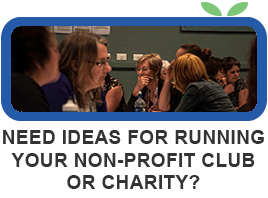Lasted updated October 17, 2014
So often we talk about ‘managing’ diversity in a team, but the term ‘managing’ implies that differences are something we need to tolerate and work-through, rather than something to seek-out and celebrate. With an attitude like that, no wonder differences cause conflict in an organisation.
In managing your team, try to see diversity as something that should be encouraged, not managed. Nurtured, not shut down. In recruiting new team members actively look for people who will bring something different to your organisation, because diversity brings:
1. Interesting Points of View
If you want to really grow your organisation, you need to be constantly considering new possibilities. However in order to see the possibilities that exist, you have to be able to view both challenges and opportunities from various perspectives. This is tricky to do if your whole team thinks in the same way.
One of the most common complaints I hear, is the tale of a difficult board member who disagrees with, or at least questions, every idea or suggestion put forward. There’s a collective sigh whenever they open their mouth to speak, and the rest of the board subconsciously switches off to anything they have to say. They are labelled as negative, a trouble-maker or any number of names with a destructive connotation.
My advice? Stop tolerating these people and start celebrating them. They are doing a great job! If no one challenged the ideas put forward, decisions would be made from a single perspective. It is likely that your organisation would miss important aspects of the decisions at hand, because the collective perspective will have blocked specific points from view.
I’m not suggesting that this person’s perspective is necessarily right, or wrong for that matter. However, their perspective is important. Develop a framework for your meetings where different perspectives can be simply shared as possibilities.
A good way to encourage this type of sharing is to ban the term ‘Yeah but’. This term instantly dismisses the prior perspective or suggestion as wrong, and puts a stop to any more exploration. Instead try to acknowledge every idea with ‘That’s an interesting perspective, another way we could look at it is…’ Only make a decision once every perspective has been explored.
2. Wider Knowledge and Experience
Albert Einstein said “Knowledge is experience. Everything else is just information.” And he was right.
Thanks to the internet, information is unbelievably easy to find. In fact, it is possible that one person could find all the information they need to run a successful organisation. The problem is – information is not knowledge. You can’t really know something until you have experienced it.
Think back to when you learned to drive. No doubt someone gave you lots of tips, you read the road code, and you watched other people in the drivers seat, but chances are you still stalled the first time you took off. You only know how to drive now, because you lived the experience first-hand.
You need people in your organisation who have had different experiences, because different experiences bring a different collection of knowledge. When your organisation is venturing into a new project or programme, you need a diverse collection of knowledge to ensure you have all the bases covered.
3. A Range of Communication Styles
My favourite way to communicate is via email. My schedule is crazy-hectic and emailing means I can communicate at a time that suits me. I like that I always have a record of what was said and that I have time to think about my reply, but mostly, (as a closet introvert) I like having days when I don’t have to actually talk. If I had a choice, I’d have almost every conversation online. Seriously.
Thankfully I don’t have a choice. Other people, both inside and outside the organisation, prefer other forms of communication. They phone me up, they make meetings and sometimes they just show up at the office door. While email conversations have their own set of pluses, so do other forms of communication. If email was everyone’s first preference, we would miss out on the relational positives of real, live conversation.
To get well rounded communication, we need to engage in all communication forms. If we don’t, we might be efficient, but we probably wouldn’t be effective. Celebrate the differences in communication styles, and be grateful when you are forced to communicate in way that is not first preference for you. Every style has its positives, and we need them all to make a team work.
4. An Army of Chiefs
I am a vigorous supporter of the concept that leaders develop leaders, not followers. A diverse team allows ample opportunity for people to step up to the plate and lead in the areas that are best suited to them. While it is still important to have one person in ultimate command, diversity creates real opportunities for delegation and leadership development throughout the whole team.
If you think this article would be useful for your members, you are welcome to use it on your website or in your newsletter. We just ask that you let us know where it is being used, and that you acknowledge our website at the bottom of the article. If you are using the article online, please include a link to our homepage.




